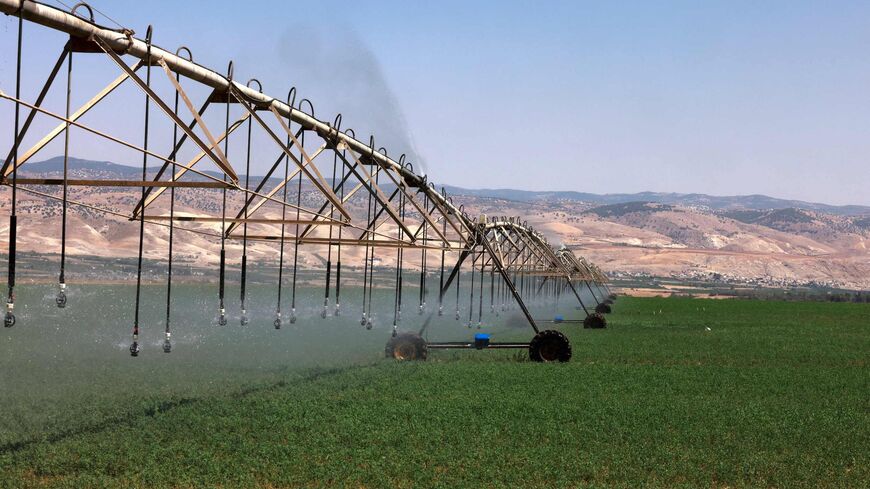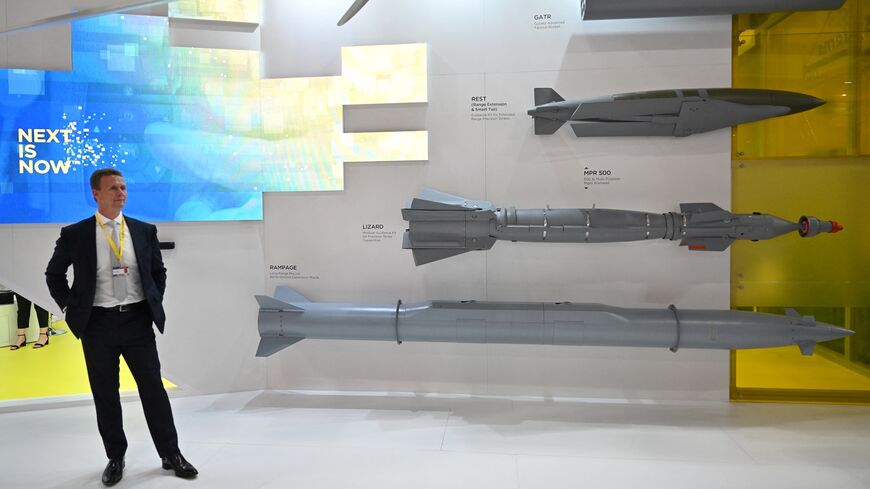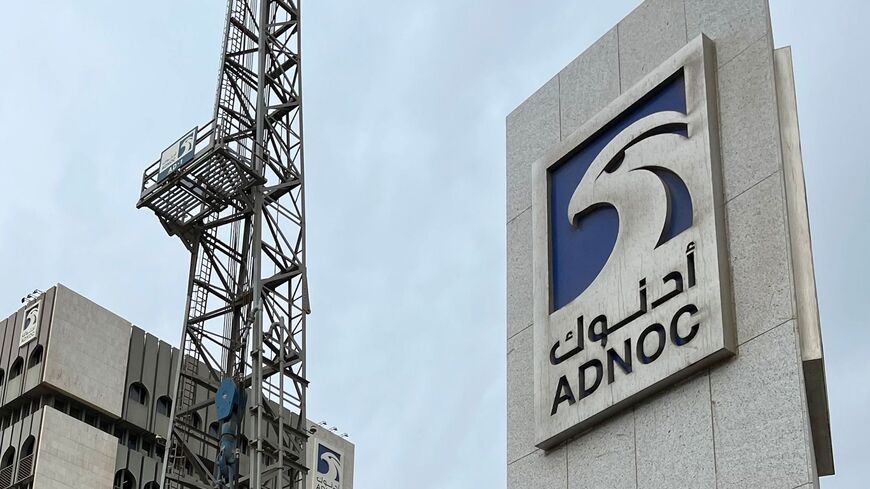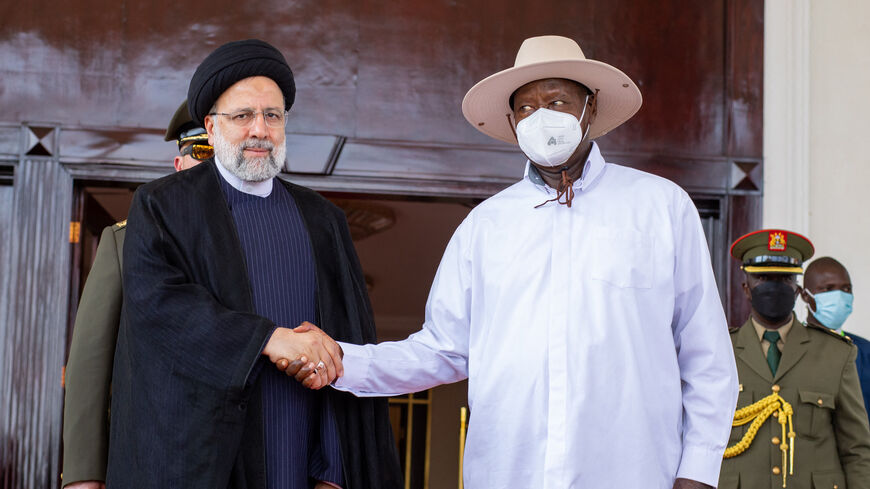Israel gears up to begin natural gas exports to Europe
Al-Monitor Pro Members
David Rosenberg
Israeli reporter specializing in business, economics and politics
April 20, 2023
Israel is moving quickly to greatly increase exports of natural gas to Europe as the continent seeks to wean itself off Russian energy imports. Initial work is already underway to step up production at existing fields and begin exploration of new ones. Proposals for a pipeline linking Israeli fields to Europe are still under consideration, but the new gas-market dynamics have made liquefaction the more promising alternative. Increased gas exports would further add to Israel’s foreign exchange earnings and contribute to economic growth, but the greater importance lies in deepening political and economic ties with Europe and its regional energy partners. That said, a significant increase in gas exports is three to five years away.
- Israel has been exporting natural gas by pipeline to Jordan and Egypt since 2017 and 2020, respectively. These sales have helped cement bilateral relations. However, Jordanian demand is small (a total of about 48 billion cubic meters, or bcm, total under current contracts) while the upside to the Egyptian market (currently 85 bcm) is limited by Egypt’s extensive domestic gas reserves and low controlled prices. Total export capacity is estimated by Israel’s Energy Ministry at 15 bcm annually.
- The much larger European market had been effectively denied to Israel due to barriers to delivery. As long as Russian gas could be sent by pipeline to Europe, Israeli exports in the form of liquefied natural gas (LNG) were not price competitive. A proposal to develop an East Mediterranean pipeline running from Israeli offshore fields in the Mediterranean to Italy faced the problem of high costs (estimated at 7 billion euros) and technical challenges.
- The Ukraine war has rapidly changed Europe’s calculations. As it seeks to find alternatives to Russian gas, it is prepared to pay higher LNG prices, suspend policies discouraging fossil fuel consumption and ensure a diversity of energy sources. In June 2022, the European Union was party to an agreement with Egypt and Israel to boost East Mediterranean gas exports to Europe, among other ways, by encouraging European companies to participate in exploration tenders.
- Israeli energy policy now favors further development of its reserves. In May 2022, the government abandoned plans to suspend further exploration and announced the following December an auction for licenses of up to seven years to explore 20 blocs grouped into four zones. The deadline for applications is June 29. Amit Mor, of the consulting firm EcoEnergy, says there is a great deal of interest from international energy companies and financial institutions, although Israel’s political crisis may ultimately deter some from bidding.
- Israeli capabilities to further exploit and export its gas are being boosted by the growing presence of major international energy companies. Noble Energy, a medium-sized producer based in Texas that developed Israel’s Tamar and Leviathan fields, was sold to Chevron in October 2020. A year later, Abu Dhabi’s Mubadala Petroleum completed the $1 billion purchase of a 22% stake in Tamar. In March, Abu Dhabi National Oil Co. (ADNOC) and BP agreed to buy 50% of Israel’s NewMed Energy, the biggest partner in Leviathan, for about $2 billion.
- Just before the ADNOC/BP deal, the partners in Leviathan approved plans to begin work on doubling production to 24 bcm annually by the end of the decade and to develop a floating LNG terminal for European exports. The facility is expected to have an annual capacity of about 6.5 bcm. Work is also underway to deliver more gas to Egypt through an expanded pipeline network for both Egyptian consumption and for re-export as LNG to third-country markets.
- ADNOC/BP’s participation will contribute considerably to this undertaking. In addition to their ability to provide capital, BP has expertise in the relatively new business of floating LNG terminals (there is currently only a handful throughout the world, one of which is operated by BP offshore Mauritania). A final investment decision on the Leviathan expansion and LNG facility is only expected in the second half of 2023.
- Although the export focus is on Egypt and LNG, plans for development of the East Mediterranean pipeline have not been shelved. Italian energy group Edison told Reuters in March that it plans to take the final investment decision on the pipeline by the end of this year. It said the EastMed-Poseidon pipeline would have an annual capacity of 10 bcm and could be ready by 2027. The European Commission may provide partial funding.
- Domestic opposition to expanding gas production and exports may yet surface. Plans to build an on-shore LNG plant were scuttled by local residents’ concerns; those may return as environmental and/or security objections in regard to a floating LNG terminal. Opposition to increasing the government-mandated ceiling on exports, now limited to 540 bcm, or 40% of total reserves, may also emerge from those saying Israel should dedicate its reserves to ensuring its long-term domestic needs. Mor warns that without a go-ahead to export new gas discoveries, there will be no incentive to explore because the domestic market is saturated.
- While more gas exports would bring Israel more foreign-currency earnings, that is not an entirely positive development, as the country has long enjoyed a current account surplus and faces a chronic problem of an overvalued currency (to offset the risk of further appreciation of the shekel as energy imports declined and gas exports grew, Israel formed a sovereign wealth fund that began operations in 2020). The main incentive to increase gas exports is to enhance ties with Europe and other East Mediterranean gas exporters, principally Egypt.
Scenario 1: Gas exports grow to 10 bcm annually.
Backed by the technical expertise and financial muscle of major energy companies, facilities are developed for LNG exports within the next five years. Production at existing fields is indeed doubled and licenses are awarded for additional blocks, adding to Israel’s total capacity. However, an East Med pipeline is not developed due to the costs and technical challenges.
Regardless of the duration and outcome of the Ukraine war, European demand for gas remains strong for the next decade as part of a strategy to diversify sources. Despite its higher cost, LNG remains part of the mix.
Scenario 2: Gas exports rise but by more modest amounts.
European demand fails to hold up because a settlement is reached over Ukraine that allows a limited resumption of Russian gas imports and/or the EU steps up efforts to reduce fossil fuel consumption.
Faced with less-favorable market conditions, Israeli gas production grows but not as much as originally anticipated as the economics do not support it. Without a sufficient volume of exports, neither a floating LNG terminal nor the East Med pipeline can be justified on commercial grounds, although exports to Egypt are increased, much of them going to the Egyptian domestic market. The auction for exploration licenses draws bids, but license holders opt not to develop most or all of the gas that they find.
On the demand side, the European market for imported gas seems to be assured for the short- and medium-term. Regardless of the outcome of the Ukraine war, policymakers are determined to tap new energy sources to reduce political risk in the future. The East Mediterranean has the advantage of being geographically proximate, and Israel in particular offers the advantage of political stability. Efforts to reduce fossil fuel consumption will target oil and coal and natural gas less so.
On the supply side, Israel is determined to make full use of its gas resources mainly due to the geopolitical benefits. The presence of four major energy companies and the likelihood that others will join them after new exploration licenses are awarded will provide the technical, financial and marketing heft needed to develop and export the gas. Domestic opposition to expanding production and/or exports may re-emerge, but while it might lead to delays, it is unlikely to present a major obstacle.
David Rosenberg has more than 30 years experience reporting, commenting and speaking on business, economics and politics in Israel and the Middle East. He has worked for Reuters, The Jerusalem Post and Dow Jones, and was bureau chief for Israel for Bloomberg News. He is the author of two books (Cloning Silicon Valley, 2001, and Israel’s Technology Economy, 2018) and has been published in The Wall Street Journal and Foreign Policy. He now writes commentary for the Haaretz daily.
We're glad you're interested in this memo.
Memos are one of several features available only to PRO Expert members. Become a member to read the full memos and get access to all exclusive PRO content.

Already a Member? Sign in
The Middle East's Best Newsletters
Join over 50,000 readers who access our journalists dedicated newsletters, covering the top political, security, business and tech issues across the region each week.
Delivered straight to your inbox.
Free
What's included:
Free newsletters available:
- The Takeaway & Week in Review
- Middle East Minute (AM)
- Daily Briefing (PM)
- Business & Tech Briefing
- Security Briefing
- Gulf Briefing
- Israel Briefing
- Palestine Briefing
- Turkey Briefing
- Iraq Briefing
Premium Membership
Join the Middle East's most notable experts for premium memos, trend reports, live video Q&A, and intimate in-person events, each detailing exclusive insights on business and geopolitical trends shaping the region.
$25.00 / month
billed annually
$31.00 / month
billed monthly
What's included:
Memos - premium analytical writing: actionable insights on markets and geopolitics.
Live Video Q&A - Hear from our top journalists and regional experts.
Special Events - Intimate in-person events with business & political VIPs.
Trend Reports - Deep dive analysis on market updates.
We also offer team plans. Please send an email to pro.support@al-monitor.com and we'll onboard your team.
Already a Member? Sign in







